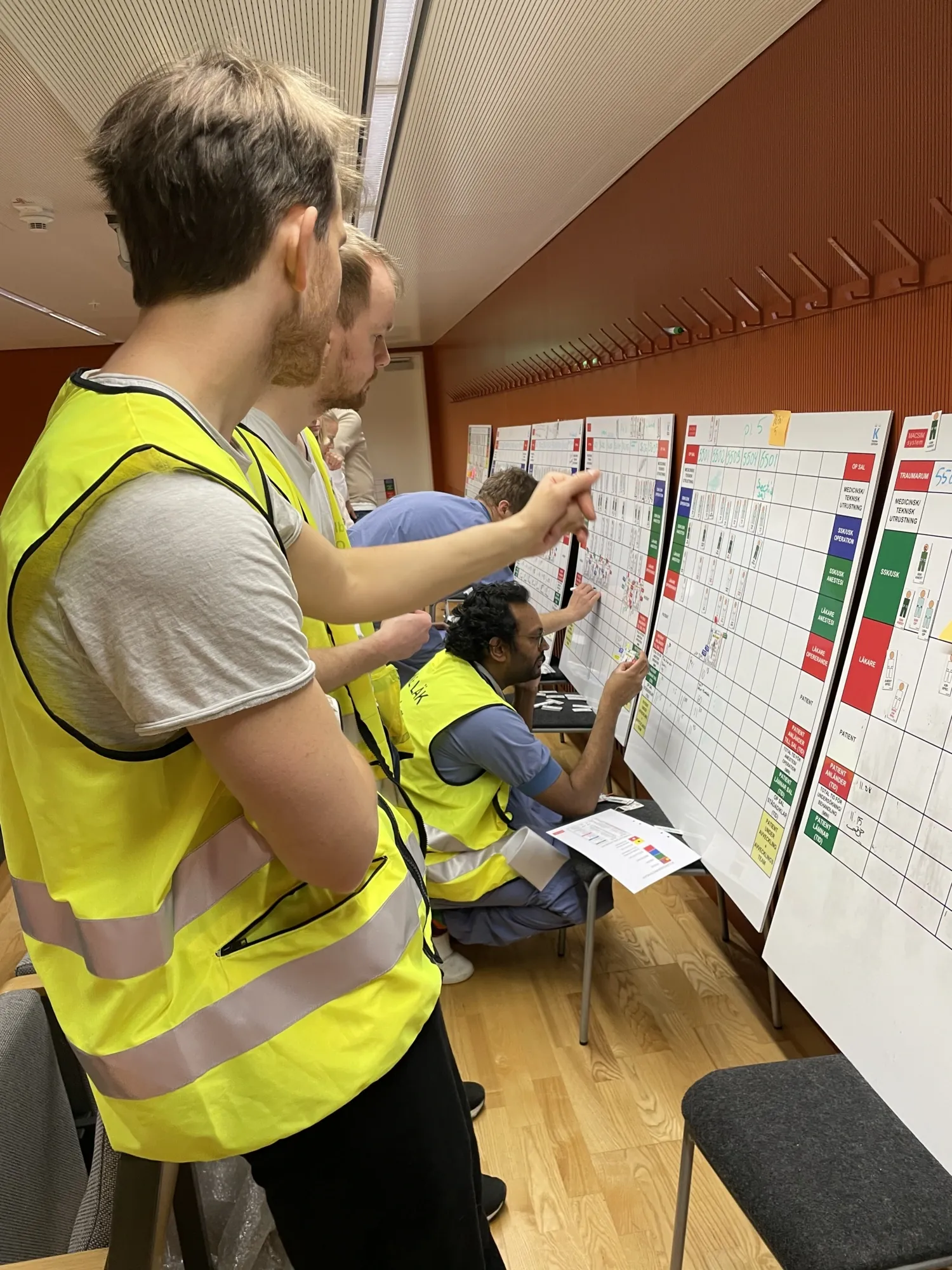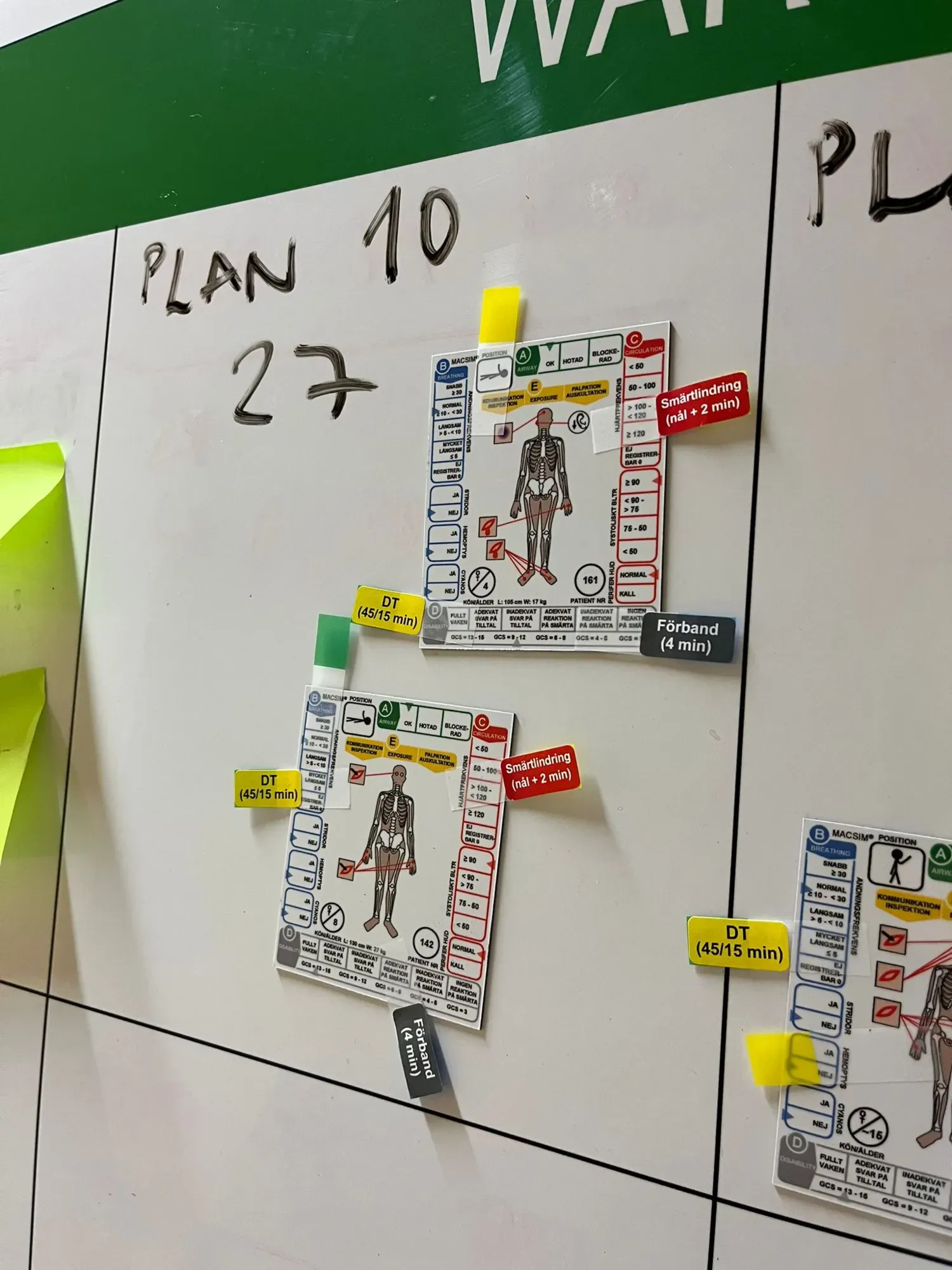Course in trauma and disaster aims at going national

A lorry explodes on the E4 motorway, there is a fire at the Hovet arena, someone takes hostages at Tom Titts, there's an explosion at Arlanda - it all happens at the same time and the medical services in Region Stockholm have to deal with a large number of injured patients at once. Fortunately, it was all just an exercise. The exercise, which is part of the TKS course, now aims to be developed into a national course concept.

TKS, which is an abbreviation of Trauma Katastrof Stockholm, is a two-day course where participants get to improve their knowledge and practice their skills in traumatology, with a focus on blast injuries and care of a high number of injured people. In addition, the course aims to create a network of emergency hospitals in the region.
Realistic exercise identifies challenges and success factors
On 9-10 April, it was time for the course once more. Day 2 brought together participants from most emergency hospitals in Region Stockholm to train together, split into groups from each hospital. The day included two scenario exercises, where the participants, by moving figures and markings on large boards, simulated how a major disaster or mass casualty event would be handled at their hospital, and how collaboration between the hospitals and other actors works.
Since this type of event is fortunately rare, it is vital to practice, to ensure that functioning procedures and structures are in place when it does happen. On the TKS course, medical care, flows and processes for handling and care are practiced.
– People from the same hospital practice together. We practice the process, time, and resource allocation at each hospital. This makes the exercise realistic, and we can identify what works well and what does not in the local disaster medical plan and in the action cards. It is extremely important to have identified this, in order to be able to be able to fix it in time for the day when an accident does happen," says course leader Lisa Strömmer, surgeon and expert coordinator in emergency surgery at the Centre for Health Crises at KI.
Develop and disseminate the course nationally
The TKS course is currently used in Region Stockholm, and has been since 2022, but the course management is working to spread it to other regions. At the course in April, observers from five regions were present to evaluate how it could be implemented in their region.
– In light of the requirements now imposed on all regions to train and exercise mass casualty events, it is a waste of time and resources that all regions to develop their own training programmes. It is better to develop a working concept, together with colleagues interested in trauma and disaster medicine from all over Sweden; a Trauma Disaster Sweden course where the Centre for Health Crises can be the platform for support and development.
The next TKS-course is held in November, and until then, Lisa Strömmer, together with the course management and the Centre for Health Crises, will continue to work towards developing the course so that it can be adopted in more regions.
